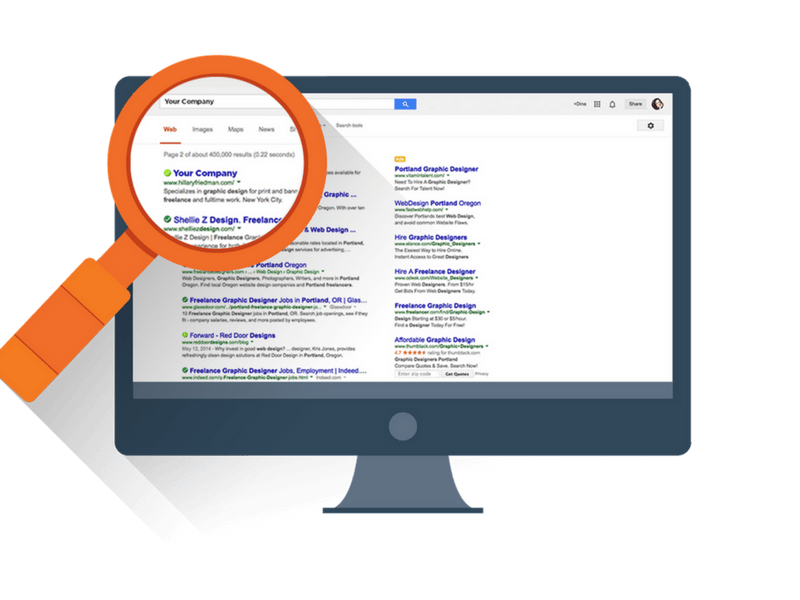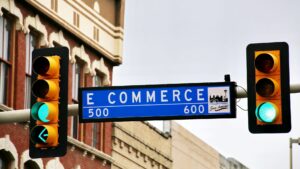Crawling is incredibly important when it comes to SEO. If you’ve ever wondered how search engines find content to appear in their search results, there isn’t a human sitting behind a screen and hand-picking the best articles.
In fact, most search engines use their own bots to crawl websites and index all relevant content – but what technology do search engines use to crawl websites, and how do they choose what content to index?
In this blog, we’re going to take a look at some of the technology search engines use to crawl websites, and what criteria is taken into account when search engine algorithms rank web pages.
What is crawling?
Crawling refers to the use of bots by search engines to analyse and “crawl” web pages on the internet. Put simply, search engine bots will explore and scour the internet, looking for new web pages to index on their search engines.
Indexing refers to the process in which a web page is added to a search engine; i.e., if you search for a particular term or keyword relating to the web page, the page will show up in the search engine’s results.
Ranking refers to the hierarchy in which content is displayed in search engine results, and this is where the importance of SEO comes in. High quality content (aka content that has been optimised for SEO) will be more likely to be displayed on the first page of the search results, leading to higher visitor rates, higher conversions, and more exposure for the website in question.
What technology do search engines use to crawl websites?
As an award-winning SEO consultancy in London, we’ve performed countless audits on websites large and small. Typically, the following factors will play a role in the overall cost of an SEO audit:

Search engines use bots to crawl websites. This method is much more efficient than it would be for search engine employees to crawl online content manually. There’s so much new content published online every day – around 250,000 websites per day to be exact – that it would be unsustainable and inefficient for it to be done manually.
What do bots look for when crawling websites?
In general, bots are not looking to rank content (that’s the job of the search engine’s algorithm), but simply looking to add more web pages to their search engines and ensure that each web page is indexed correctly. Put simply, search engines want to make sure that they’re directing searchers to the right content when they search for specific terms and keywords.
Crawlers also look for the following when crawling websites:
Images, videos, audio content
- Keywords and key phrases
- How recently the page was uploaded or updated
- Reader and user engagement (aka how often the site is visited, the intention of user visits, etc.)
What is a search engine index?
A search engine index refers to the library of content that the search engine has accumulated via crawling the web. It is effectively a gigantic database, made up of all the websites crawled and indexed by search engine bots.
Do crawlers rank content on search engines?
Not exactly. While crawlers choose which content shows up in the search engine’s index, search engines typically use an algorithm to rank content. This is because not all content will be relevant for all users at any given time; the search engine’s algorithm will take into account various factors about the person making the query, which typically tend to be the following:
Location
Your location (if available) will influence the results you’re shown when you type in keywords to Google. This is because the accuracy of displayed content might differ from location to location. For example, if you searched the phrase “average rent 2024”, you’d want to find the average rent in your area. Most search engines, if they already have enough information about you, will be able to cater the results of your searches to reflect your circumstances.
Language
The search engine will almost always show you search results in the language that you used to search for your query; however in some cases, your location will take precedence over your language. In this case, you’ll be shown content relevant to the language of the location you’re in.
Search history
In order to offer you the most relevant search results, search engines will also often take into account your previous search history; sites you frequently use, terms you’ve already researched, etc.
Device used for searching
Some search results will also be skewed on whether or not you’re using a PC, laptop or mobile device. This is because some sites are not particularly mobile-friendly, so won’t be prioritised by an algorithm producing results for a searcher using a mobile.
Why is crawling important for SEO?
So, if crawlers don’t rank web pages, why are they important when it comes to SEO? It’s simple: crawling is important for SEO because your website will need to be crawled and indexed in order to rank on Google or other relevant search engines. If your site isn’t indexed, it won’t be visible in any search results, and any SEO efforts to increase your site’s rankings will be futile. In order to have your website indexed by search engine bots, you’ll need to ensure that your website is full of high quality content (content that is relevant to the keyword terms you’re targeting) and ensure that you’re not producing duplicate or low-quality content (which a search engine bot might consider to be spam). Having an SEO expert on-hand to audit your site and audit your content can increase your chances of having your website indexed by search engines.
Ranking your website
Once your site has been indexed, you’ll be able to begin the process of SEO optimisation, which is geared towards appealing to the search engine’s algorithm, rather than the crawler bots. As mentioned above, the algorithm will take into account factors such as a user’s location, language, and search history, but there are also basic SEO principles that will determine whether or not a web page ranks high on the first pages of a search engine.
In general, a web page needs the following in order to rank on Google and other search engines:
Unique content
Duplicate content is severely penalised on search engines, and sometimes won’t even be indexed.
High quality content
Well-written, factual, well-structured, and informative content is key to SEO dominance. If your web pages, landing pages, service pages or blogs are poorly written, you’re not going to bag the coveted top spot in the search results.
Backlinks and off-site content
It’s incredibly important to have significant dofollows to your content; this means that people link back to your web page via other sources on the net. Lots of high quality backlinks illustrate that your content can be considered authoritative on the given subject. You can obtain backlinks through guest posts, guest blogs and social media.
Images and visual content
Search engines are multi-faceted; you can typically search keywords in page results, image results, video results and more. If your web page incorporates high quality images or visual content, your content is probably more likely to rank highly.
User friendly
If your site is full of error 404 pages, broken links, broken images or outdated content, the site is unlikely to rank on results pages. Search engines prefer to rank updated, relevant and recent content, so it’s a good idea to re-optimise your content regularly.
Final thoughts
Crawling remains an important factor when it comes to helping your site rank on Google and other search engines. While it’s only the first step in the SEO journey, having your site indexed allows you to begin the real work of optimising your website and improving its visibility. The best way to improve the visibility of your website is to familiarise yourself with good SEO practices. If you don’t yet have the budget for a full SEO audit, you can always opt for SEO training in London and learn from the experts how to optimise your website yourself.
Depending on the size of your website – and depending on the type of SEO audit your website needs – a typical audit can take anywhere from 2 to 6 weeks. If your website is very text-heavy, with lots of backlinks and off-site content, it may take even longer. You shouldn’t be discouraged by the length of time your SEO audit might take. SEO itself is a long process; we prefer to think of it as a marathon, not a sprint.
Even if you’re not planning on implementing a new SEO strategy, an SEO audit can be incredibly helpful when it comes to improving the user experience on your website. Here are just a few reasons why businesses should conduct regular SEO audits on their websites:










